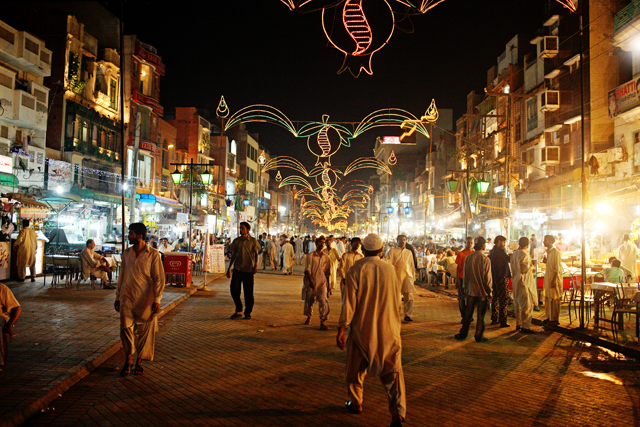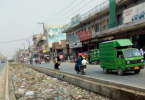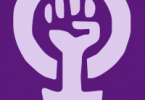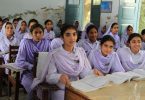Reported in collaboration with Malik Amman Aziz and Mishaal Iftikhar
Muslims in Pakistan are preparing for Ramadan, the holy month of fasting that is due to commence in early May.
Ramadan, held in the ninth month of the Islamic calendar, is said to be both a celebration of the best of times, whilst contrastingly a time to cleanse the soul of worldly activities – as a way to rid one’s sins. The latter is done by fasting, where one must abstain from eating or drinking during daylight hours.
This time is also devoted to acts of piety and spiritual connection with Allah, which is the Arabic word for God in Abrahamic religions; alongside regular prayer sessions throughout the day.
According to the Islamic belief, Ramadan commemorates the moment when the Koran (the sacred book of Islam) was presented to Muhammad. A common greeting during this festive period is “Ramadan Mubarak“, which means to have a blessed Ramadan.
During this month-long fasting period, Muslims are encouraged to read the Koran, while putting into practice the teachings of Islam. Some teachings include: fasting for self-discipline and purity of the mind and also maintaining a sense of charity for those who are less fortunate.
Hajji Abdul Mannan, an old resident of Lahore, said “Food is available from the mosque for free, so anyone can go there to share a meal with the community.”
What happens during Ramadan?
A typical day during the fasting month starts with an alarm that wakes people up in time for prayer.
Before mobile phones, Ramadan drummers would roam the streets, drumming a distinct beat as a way of waking up the neighbourhood for prayer. Local Lahoris said this practice is now only present in rural areas, where traditional cultural elements are still valued.
Upon waking, a light meal is consumed before dawn called sehri, which means “of the dawn”. Sehri is seen as a blessing, usually made up of a hearty meal to sustain one throughout the day of fasting – it ends when the sun rises, a signal for morning prayer to begin, known as fajr.
 A complete sehri style breakfast with all the trimmings, taken on Sunday, Feb. 21, 2016. A traditional meal that is eaten in the morning before sunrise to prepare one for a day of fasting. (MARK WEINS)
A complete sehri style breakfast with all the trimmings, taken on Sunday, Feb. 21, 2016. A traditional meal that is eaten in the morning before sunrise to prepare one for a day of fasting. (MARK WEINS)
In an area known as Old Lahore, Izad El Bashar, a local man dining with his family, said “People rush to these corners of the city to enjoy a good meal to begin their fast.”
A traditional dish eaten pre-dawn is nihari, which is “a rich slow-cooked stew often made with mutton, topped with ginger, lemon and ghee (clarified butter) and served alongside Khameeri roti,” which is a flatbread topped with chopped coriander and sesame seeds.
“Nihari is such a generational dish that it runs in old families, for example, the sons, grandsons, and similarly their grandchildren are the ones who cook it under different names they all claim to be original,” Mr Mannan said.
As the day ends, and the sun goes down, it is time for maghrib, which is the last prayer before the fast is broken. The evening meal is called iftar, which literally means, “to break fast”. Iftar is commonly a meal shared with family or with the local community.
 At the local Dai Anga Mosque, in Lahore, Pakistan, communities share a meal together after a day of fasting, taken on Wednesday June 14, 2018. Meals are offered to the community free of charge, while uniting the community during a period of devotion. (KAMRAN CHAUDHRY)
At the local Dai Anga Mosque, in Lahore, Pakistan, communities share a meal together after a day of fasting, taken on Wednesday June 14, 2018. Meals are offered to the community free of charge, while uniting the community during a period of devotion. (KAMRAN CHAUDHRY)
The break of fasting is typically done with a date, which was the custom of the Prophet Muhammad (the last prophet of God). However, eating dates is considered a good way to balance sugar levels, while also being symbolically associated with hospitality and peace.
The streets of Pakistan during Ramadan are lively in the evenings, as people flood out in the streets to share a meal together. “All meals were made by my mother, and sometimes my grandfather would even make us ice-cream, all the little things that kept our families happier and stronger,” Mr Mannan said.
Meals in the evening can vary slightly from place to place. Many places start with fried snacks including: pakoras, samosas, and various fritters; curries; barbequed meats with biryani rice; fruit salad and yoghurt; and finished with a sweet or salty yoghurt drink called lassi.
 Fried snacks galore, from the Fort Road Food Street, in Lahore, Pakistan, taken on Sunday, May 18, 2018. These snacks are a typical iftar favourite during Ramadan. (FAHIM SADDIQ)
Fried snacks galore, from the Fort Road Food Street, in Lahore, Pakistan, taken on Sunday, May 18, 2018. These snacks are a typical iftar favourite during Ramadan. (FAHIM SADDIQ)
Some members of the community are exempt from fasting, including pregnant women and children, the elderly and people who are sick.
However, during the day there is little evidence of people eating, as it is illegal to eat or sell food during the month of Ramadan. “People can be fined up to 500 rupees if they get caught,” Mr Mannan said.
There is also an unspoken stigma that is associated with Muslims who do not take part, as one can be viewed as a bad Muslim when not fasting.
In 2018, there were about 60 deaths in Karachi, Pakistan, where the country experienced a heatwave during Ramadan. The fasting period can be difficult depending on when it occurs, as the dates coincide with the lunar calendar.
This year, there will be medical staff on hand in Lahore to assist those who do not cope, and a campaign to warn people to cover up and stay out of the heat.







